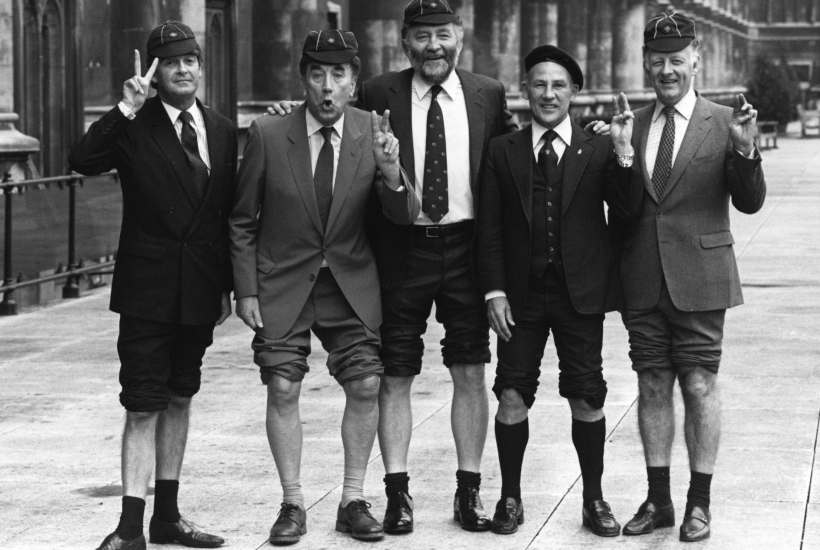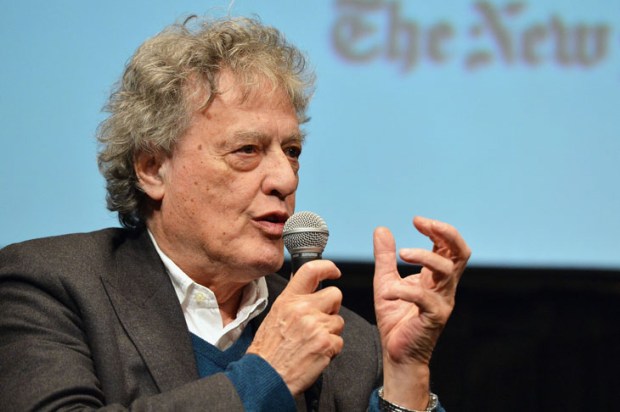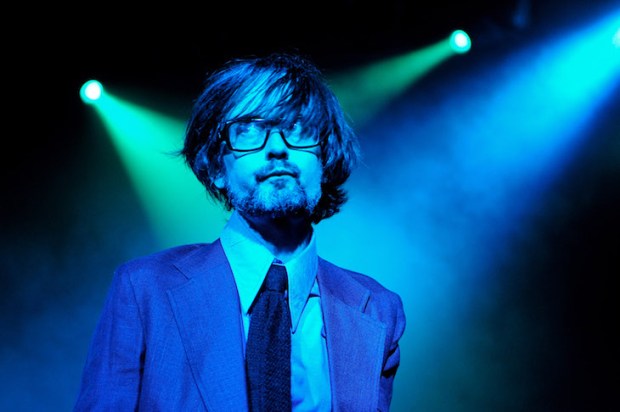‘Comedy is like music,’ said Edwin Apps, one of the characters in Wednesday afternoon’s Radio 4 play, All Mouth and Trousers (directed by David Blount). ‘The words are the notes and they have to be in exactly the right place. And every line has to pull its weight, add something to the situation.’ Apps was one half of the writing partnership who created that most unlikely of TV hits in the supposedly swinging Sixties, All Gas and Gaiters, set in the cathedral close of St Oggs and featuring a laughably inept quartet of Anglican clerics. Mark Burgess’s engaging drama told the story of how the series (which ran for 33 episodes) got made, and featured Apps and his co-writer and wife Pauline Devaney playing themselves as a now divorced couple looking back on their younger selves.
Apps learnt his craft acting on the West End stage and he knew that behind every great farce there lies a tight structure and a keen understanding of timing. You might think it’s all froth, but even a single word out of place will destroy the concoction, pierce the bubble. The plotlines for All Gas and Gaiters were incredibly silly (a crumbling tower, an ancient story about virgins and white stockings) but they still required 59 pages of carefully crafted script for a single half-hour episode. What turned the series into a comedy classic was the timing and interplay between the characters, Derek Nimmo’s chaplain taking the pregnant pause and making it almost another character. Zeb Soanes did a brilliant job of convincing us he was Nimmo and not about to break into reading the news (his more usual role on Radio 4), while John Sessions starred as Frank Muir, who ensured the stuffy bosses at BBC Entertainment accepted a comedy script half written by a woman, no small feat back in 1966 when women were still expected to be seen on TV, not to make it.
Over on 3, Nick Warburton’s specially commissioned drama (directed by Marion Nancarrow) as part of the Shakespeare celebrations took us to Stratford-upon-Avon on 23 April 1616 and to the playwright’s last day. He’s anxious, feverish, his head full of imaginings. Who is that dark stranger at the window, he wonders, or the pale-faced child, the man with bloody hands? The stranger says to him, ‘The words trouble you.’ To which Shakespeare replies, ‘They have to trouble you if you write. You can’t afford to be content.’ He knew the danger of getting a word wrong, not taking full measure of its meaning.
He wants, he needs, to know whether anyone will remember. Did anyone listen to what he wrote? Did they hear? Or did they simply watch the costumes wafting backwards and forwards across the stage? The man with bloody hands is the physician William Harvey, who studied the heart and blood circulation at the same time as Shakespeare was writing plays about love, the beating heart. Harvey heals, but the playwright worries, ‘I am what I make other people say and that’s all…’
Robert Lindsay was a convincing Shakespeare in an atmospheric, thoughtful play that could only have been done on radio, taking us inside the playwright’s head, its drama not in those costumes but in the words themselves and the images they conjured.
Words and how we use them sometimes carelessly are the key to Dominic Lawson’s series Why I Changed My Mind (Radio 4, Sunday). It’s such a simple but effective premise to interview key figures who have found themselves beset by controversy because of how they have changed their stance, their thinking, and to ask them why. The focus intensifies the conversation, charges it with added meaning. In this first programme of the new series Lawson, a former editor of this magazine, talked to Trevor Phillips, former chair of what was called the Commission for Racial Equality (and now the Equality and Human Rights Commission). When he took that job, Phillips told us, he wanted to work towards a society that recognised difference and accepted diversity. He believed in ‘multiculturalism’ as a way of ensuring that he could be accepted for what he was and not singled out by it (he was born in London but grew up in what was British Guiana, before settling in London, aged 17). Now, though, he has turned against such cultural sensitivity. On the contrary he says it is important ‘to establish a core of Britishness’.
Why?, asked Lawson. At which point Phillips became very emotional, his voice tearing up as he recalled the Victoria Climbié case, in which a young girl was viciously tortured and then killed by her guardians who thought she was ‘possessed by spirits’. She grew up close to where he lived, he told us; went to church on the same road as his church. Phillips agreed at the time with those in authority who decided not to investigate. Now he believes this was ‘a form of racism’, quoting also the cases at Rotherham and Rochdale where he says, ‘People turned a blind eye to what was going on because it’s the Asians.’ He left the debate wide open, the right words still to be found.
Got something to add? Join the discussion and comment below.
Get 10 issues for just $10
Subscribe to The Spectator Australia today for the next 10 magazine issues, plus full online access, for just $10.













Comments
Don't miss out
Join the conversation with other Spectator Australia readers. Subscribe to leave a comment.
SUBSCRIBEAlready a subscriber? Log in